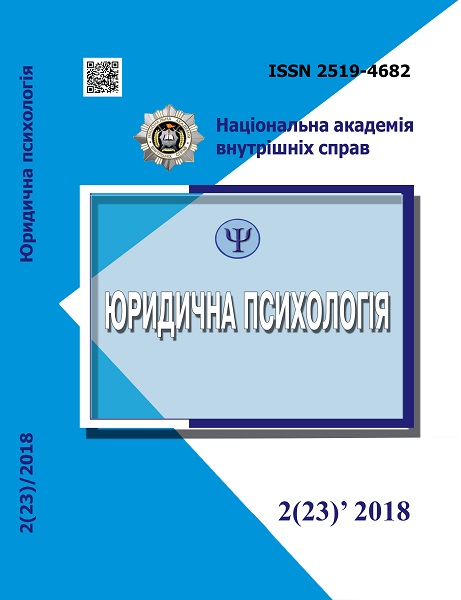Communication Peculiarities of Future Psycologist –Extroverts and Introverts
Abstract
The article deals with the results of a theoretical study of the communication problem in the context of psychologists vocational training and an empirical revealing of the presence and pattern of the socio-psychological characteristics of communication among future psychologists - extroverts and introverts. Communication is regarded as a form of human activity, the result of which is interaction with another person or people; as a multidimensional process of establishing and developing contacts between people, generated by the need for joint activities. Communication is a significant component and a necessary condition for effective professional work of a psychologist. The educational process of training a specialist in the field of psychology should be based on scientific knowledge about the features of communication and their determination in future psychologists. It is empirically proven that extraversion and introversion, as properties of human temperament, determine the emergence of certain socio-psychological characteristics of communication. New data on the characteristics of communication-a communicative attitude, a psychological defense strategy and the ability to self-regulation of future psychologists -have been obtained depending on their belonging to a group of extroverts or introverts. In particular, it was revealed that the communication of future extroverted psychologists has such socio-psychological characteristics: a more expressive (than introvert) negative communicative attitude with the dominance of the attitude toward veiled cruelty and muttering towards partners; the use of peacefulness in communication as a strategy of psychological defense of subjective reality; low level of self-control. The communication of future introvert psychologists is characterized by: less expressive (than in extroverts) negative communicative attitude with the domination of the attitude toward negative experience of communication; the use of avoidance in communication as a strategy of psychological defense of subjective reality; an average level of self-control. Accordingly, substantial lines of psychological and pedagogical work with extrovert and introvert students have been established with the aim of increasing the effectiveness of their professional training.
Downloads
Abstract views: 251 PDF Downloads: 769
- Authors reserve the right to authorship of their own work and transfer to the magazine the right of the first publication of this work under the terms of the Creative Commons Attribution License, which allows other persons to freely distribute published work with mandatory reference to authors of the original work and the first publication of an article in this magazine.
- Authors have the right to enter into separate additional agreements on non-exclusive dissemination of the work in the form in which it was published in the journal (for example, to post an article in the institution's repository or to publish as part of a monograph), provided that the link to the first publication of the work in this journal is maintained.
- The journal's policy allows and encourages the posting of articles by authors on the Internet (for example, in electronic storehouses of institutions or on personal websites), both before the submission of this manuscript to the editorial office and during its editorial processing, as this contributes to the creation of a productive scientific discussion and positively affects the efficiency and dynamics of citing the published work.




